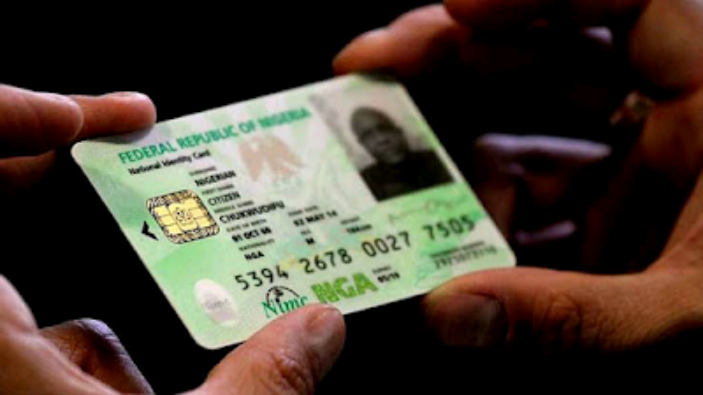The Federal Government plans to link citizens’ credit scores to their National Identification Number (NIN), creating a comprehensive record of borrowing and repayment behavior, that follows them across banks, fintech apps and micro-lenders.
It added that defaulters risked passport or licence renewal and denied rent access.
The Chief Executive Officer of the Credit Corporation of Nigeria, Uzoma Nwagba, revealed this to journalists at the Meet-the-Press briefing series organised by the Presidential Communications Team at the Aso Rock Villa, Abuja, on Tuesday.
Nwagba said the agency is building a centralised national credit bureau that will feed lenders real-time data tied to each borrower’s NIN.
He explained that the consequences of default would extend beyond higher interest rates.
Under the draft rules, chronic defaulters could be denied passport or licence renewal and even screened out by landlords.
Nwagba explained, “If you default on your loan, it could affect your ability to renew your passport, your driver’s license, or even rent a house. There will be no hiding place.
“Whether you borrowed from a commercial bank, a microfinance institution, or a digital lender, that data will now be traceable and carry real consequences.
“This is a fundamental shift in how credit works in Nigeria. Your NIN will now serve as the anchor for your credit profile.”
He said all licensed lenders must now file repayment data to CreditCorp, which will generate algorithmic scores using both financial and non-financial inputs.
The goal, Nwagba said, was to give every adult Nigerian a live credit rating, “not optional, but automatic” that rewards discipline and penalises delinquency without predatory tactics.
“More importantly, consequences for defaulters will be structured and deterrent, but not predatory.
“We are building a system that encourages responsible borrowing and rewards financial discipline,” he added.
The effort will also incorporate financial and non-financial data to generate a comprehensive credit scoring algorithm for every Nigerian adult.
“The ultimate goal is for everyone to have a credit score. This is not optional.
“We are creating a structure where your access to economic opportunities is directly tied to your financial behaviour,” said the CreditCorp chief.
Beyond enforcing credit discipline, CREDICORP’s broader mandate, Nwagba said, aligned with President Bola Tinubu’s Renewed Hope Agenda to improve citizens’ quality of life, curb corruption, and stimulate industrial growth.
“The first goal is to improve the quality of life. This is President Tinubu’s vision to give Nigerians access to resources that can uplift their living conditions.
“The second is to address corruption. Many civil servants and young professionals turn to unethical practices because they lack access to capital to meet life’s basic demands.
“The third goal is to catalyse Nigerian industries. We aim to tie consumer credit to the purchase of locally manufactured goods,” he told journalists.
He also argued that improved consumer credit access would reduce pressure on active income and discourage unethical shortcuts.
“That way, we support local producers, drive demand, and create jobs—ultimately building a sustainable economy,” he noted.
Nwagba put Nigeria’s consumer credit gap at N183tn and urged private lenders to plug it.
“No government in the world can provide that kind of money. Financial institutions must step up.
“With the right infrastructure and transparency, lenders will be more confident, interest rates will drop, and Nigerians will finally have access to affordable credit,” he said.
